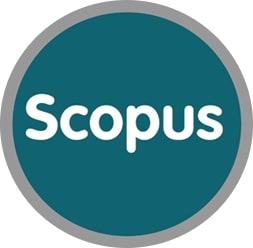Power and Ethics in State-Owned Enterprises: The Pertamax Adulteration Case through the Lens of Sharia Economic Law
DOI:
https://doi.org/10.5281/zenodo.17340949Keywords:
Abuse of authority; BUMN; Maqāṣid al-Sharī‘ah; Pertamax Adulteration; Sharia economic law.Abstract
This article analyzes the misuse of authority by officials of state-owned enterprises (BUMN) in the Pertamax fuel adulteration case from the perspective of Sharia Economic Law. The study employs a qualitative-descriptive method with a normative-juridical approach, drawing on primary and secondary legal materials, supported by documentation and literature analysis. The findings reveal that the act of fuel adulteration—mixing subsidized or lower-grade fuels with Pertamax for economic gain—is not only a violation of state regulations but also a breach of the amanah and maslahah principles in Islamic law. The abuse of authority by BUMN officials in this context indicates a failure to uphold public trust (al-amānah), justice (al-ʿadālah), and the public interest (al-maṣlaḥah al-ʿāmmah) as mandated by Sharia economic ethics. Such practices lead to market distortion, consumer losses, and potential macroeconomic instability, all of which are inconsistent with the maqāṣid al-sharīʿah framework. The study concludes that these actions should be categorized as gharar, khiyānah, and fasād, thereby necessitating systemic reform in the governance of BUMN and the energy sector. The academic contribution of this article lies in its comprehensive integration of modern legal-economic analysis with the principles of Islamic economic jurisprudence, offering a theoretical model for evaluating public sector violations through a Sharia lens. Furthermore, this study contributes to strengthening the legal and ethical foundations in the formulation of policies and regulations governing state-owned enterprises.
Downloads
References
Abdul Ghofur Anshori, Lembaga Keuangan Syariah. Yogyakarta: UII Press, 2020.
Ahmad Bakar. “Etika Bisnis dan Praktik Korporasi: Telaah Kritik terhadap Etika Ekonomi Konvensional.” Jurnal Etika dan Hukum Bisnis 3, no. 1 (2019): 15–27.
Achmad Rofiq, Hukum Islam di Indonesia. Jakarta: PT RajaGrafindo Persada, 2015.
Andi Hamzah, Asas-Asas Hukum Pidana. Jakarta: Rineka Cipta, 2021.
Dedi Prasetyo, Hukum Ekonomi Syariah di Indonesia. Yogyakarta: Deepublish, 2017.
Ghozali, Imam. “Korupsi Jabatan dan BUMN: Telaah Hukum Administrasi dan Pengawasan.” Jurnal Hukum dan Etika Publik 5, no. 1 (2020): 35–49.
Iim Halimatussa’diyah. “Governance dan Akuntabilitas dalam Perspektif Ekonomi Islam.” Tazkia Islamic Finance and Business Review 10, no. 2 (2018): 211–226. https://doi.org/10.30993/tifbr.v10i2.109.
Jimly Asshiddiqie, Pengantar Ilmu Hukum Tata Negara. Jakarta: Konstitusi Press, 2006.
Kementerian Agama Republik Indonesia, Kompilasi Hukum Ekonomi Syariah. Jakarta: Direktorat Jenderal Bimas Islam, 2019.
Komite Nasional Kebijakan Governance (KNKG), Pedoman Umum Good Corporate Governance Indonesia. Jakarta: KNKG, 2006.
M. Baharuddin Lopa, Etika dan Profesionalisme Penegak Hukum. Makassar: Hasanuddin University Press, 2016.
M. Quraish Shihab, Wawasan Al-Qur’an: Tafsir Maudhu’i atas Pelbagai Persoalan Umat. Cet. 16. Jakarta: Lentera Hati, 2018.
Muhammad, Etika Bisnis Islam: Konsep dan Aplikasinya dalam Dunia Bisnis Kontemporer. Jakarta: Kencana, 2019.
M. Ridwan. “Etika dan Integritas dalam Pengelolaan Keuangan Negara Perspektif Islam.” Mazahibuna: Jurnal Perbandingan Mazhab 11, no. 2 (2020): 179–194. https://doi.org/10.24252/mzh.v11i2.14976.
Nur Rohim Yunus. “Pengawasan Internal dalam Pengelolaan Keuangan Negara Perspektif Hukum Islam.” Al-Adl: Jurnal Hukum 12, no. 1 (2020): 45–56. https://doi.org/10.31602/al-adl.v12i1.3019.
Rafik Issa Beekun, Etika Bisnis dalam Islam. Yogyakarta: Mitra Pustaka, 2001.
Rina Oktaviani. “Tindak Pidana Korupsi dalam Perspektif Islam dan Hukum Positif.” Al-Ihkam: Jurnal Hukum dan Pranata Sosial 14, no. 1 (2019): 56–73. https://doi.org/10.19105/al-ihkam.v14i1.2434.
Saiful Anwar. “Urgensi Hisbah dalam Menjaga Etika Bisnis Modern.” Jurnal Hukum Islam 16, no. 2 (2018): 225–240. https://doi.org/10.28918/jhi.v16i2.1234.
Sri Suwitri, Manajemen Kebijakan Publik. Semarang: Universitas Diponegoro Press, 2016.
Yusuf al-Qaradawi, Fiqh al-Dawlah fi al-Islam. Kairo: Maktabah Wahbah, 1997.
Zainal Arifin, Pengantar Hukum Ekonomi Syariah. Bandung: Pustaka Setia, 2019.
Downloads
Published
How to Cite
Issue
Section
License
Copyright (c) 2025 Lia Yuliana, Antoni Julian

This work is licensed under a Creative Commons Attribution-ShareAlike 4.0 International License.















